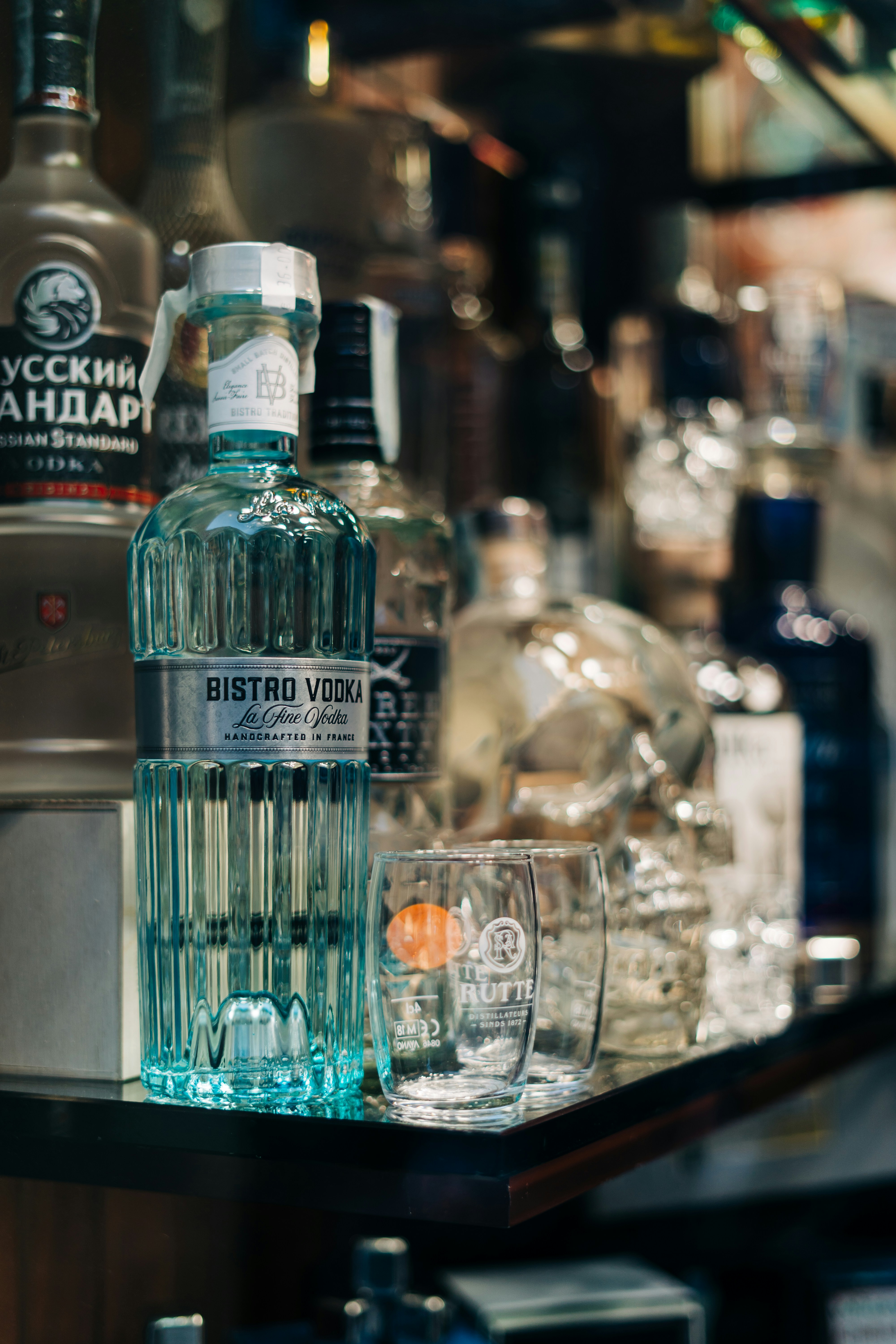Do you enjoy a drink or two every now and then? If so, you might be curious to know if alcohol consumption is linked to gout. Gout is a type of arthritis that causes painful joint inflammation and it's often associated with excessive alcohol consumption. In this article, we'll explore this connection and uncover the truth behind whether your indulgence in alcoholic beverages could be putting you at risk for gout. Get ready to sip on some insightful information as we unravel the potential link between alcohol and gout.
Overview of Gout and Alcohol
Gout is a type of inflammatory arthritis that can cause severe pain, redness, and swelling in the joints. It is often associated with high levels of uric acid in the body, which can lead to the formation of needle-like crystals in the joints.
Alcohol is a widely consumed beverage that comes in various forms, such as beer, wine, and spirits. Many people enjoy drinking alcohol in moderation, but excessive consumption has been linked to various health problems, including gout.
Understanding Gout
Gout is a condition that occurs when there is an accumulation of uric acid in the body. Uric acid is a byproduct of the breakdown of purines, which are naturally occurring substances found in certain foods and cells in the body.
When uric acid levels become too high, they can form crystals that deposit in the joints, causing inflammation and pain. The most commonly affected joint is the big toe, although gout can also occur in other joints such as the ankles, knees, wrists, and elbows.
The causes of gout are multifactorial and can include a combination of genetic predisposition, lifestyle factors, and underlying health conditions. Certain dietary choices, such as consuming foods high in purines, can increase the risk of developing gout.

Types of Alcohol
Alcohol is classified into three main types: beer, wine, and spirits.
Beer
Beer is a popular alcoholic beverage made from fermented grains, such as barley, wheat, and corn. It typically has a low alcohol content, ranging from 4% to 6% ABV (alcohol by volume). Some beers, particularly craft beers, can have higher alcohol content.
Wine
Wine is made through the fermentation of grapes or other fruits. It is available in various types, including red, white, rosé, and sparkling. The alcohol content of wine can vary significantly, with most wines ranging from 12% to 14% ABV.
Spirits
Spirits, also known as hard liquor or distilled spirits, are beverages produced through the distillation of fermented grains, fruits, or vegetables. Examples of spirits include vodka, rum, whiskey, tequila, and gin. The alcohol content of spirits is typically higher than that of beer and wine, ranging from 40% to 60% ABV.
Prevalence of Gout
Gout is a relatively common form of arthritis, affecting millions of people worldwide. According to statistics, the prevalence of gout has been on the rise in recent years, potentially due to lifestyle changes and the increasing consumption of foods and beverages that can contribute to elevated uric acid levels.
Certain populations, such as men and people with a family history of gout, are at a higher risk of developing the condition. Furthermore, age, obesity, and certain health conditions like hypertension and kidney disease can also increase the likelihood of developing gout.
Effects of Alcohol on the Body
Alcohol consumption can have both short-term and long-term effects on the body, including its potential impact on gout.
How Alcohol Affects Uric Acid Levels
Alcohol consumption has been shown to increase the production of uric acid in the body and lead to elevated uric acid levels. This is particularly true for beverages with a high purine content, such as beer. Additionally, alcohol can interfere with the excretion of uric acid by the kidneys, further contributing to its accumulation in the body.
Impact of Alcohol on Kidney Function
The kidneys play a crucial role in removing uric acid from the body. Excessive alcohol consumption can impair kidney function, making it more difficult for the kidneys to effectively remove uric acid. This can result in higher levels of uric acid in the bloodstream and an increased risk of gout attacks.
Dehydration and Gout
Alcohol is a diuretic, meaning it increases urine production and can lead to dehydration. Dehydration can contribute to the development of gout by concentrating the uric acid in the body and making it more likely to form crystals in the joints.
Alcohol Consumption and Gout Risk
Numerous research studies have explored the relationship between alcohol consumption and the risk of developing gout.
Research Studies on Alcohol and Gout
Several studies have found a positive association between alcohol consumption and the risk of gout. These studies suggest that alcohol, especially beer, can increase the risk of developing gout and trigger gout attacks.
However, it is important to note that individual responses to alcohol can vary, and some people with gout may be more sensitive to the effects of alcohol than others.
Correlation between Alcohol Consumption and Gout
While it is clear that alcohol consumption can increase the risk of gout, it is also important to recognize that gout is a complex condition influenced by various factors. Alcohol consumption alone may not be the sole cause of gout, and other lifestyle factors, genetics, and underlying health conditions can also contribute to its development.
Alcohol Types and Gout Risk
Different types of alcoholic beverages can have varying effects on the risk of developing gout.
Beer and Gout
Beer, particularly those with high purine content, has consistently been associated with an increased risk of gout. The combination of alcohol and purines in beer can cause uric acid levels to rise and potentially trigger gout attacks. It is advisable for individuals with gout to limit or avoid beer consumption.
Wine and Gout
Moderate wine consumption has been found to have a neutral effect on gout risk. Some studies have even suggested that certain components in wine, such as antioxidants, may have potential protective effects against gout. However, excessive wine consumption can still contribute to dehydration and raise uric acid levels, so it is important to consume it in moderation.
Spirits and Gout
While spirits do not contain purines like beer, their high alcohol content can still lead to elevated uric acid levels. Excessive consumption of spirits can also contribute to dehydration, which can increase the risk of gout attacks. Therefore, it is advisable to consume spirits in moderation and stay hydrated.
Moderate Alcohol Consumption and Gout
Moderate alcohol consumption refers to drinking in moderation, which is defined as up to one drink per day for women and up to two drinks per day for men, according to the Centers for Disease Control and Prevention (CDC).
Defining Moderate Alcohol Consumption
Moderate alcohol consumption guidelines may vary depending on the country and organization. It is important to note that these guidelines are not meant to encourage alcohol consumption but rather establish limits for individuals who choose to drink.
Potential Benefits of Moderate Alcohol Intake
Some studies have suggested that moderate alcohol consumption, particularly of wine, may offer certain health benefits. These potential benefits include a lower risk of heart disease and certain types of stroke. However, it is essential to weigh these benefits against the potential risks, especially for individuals with gout.
Excessive Alcohol Consumption and Gout
Excessive alcohol consumption has been linked to an increased risk of developing gout, as well as more frequent and severe gout attacks.
Effects of Heavy Drinking on Gout Risk
Heavy alcohol consumption, especially binge drinking, can significantly raise uric acid levels in the body. It can also damage the kidneys and impair their ability to eliminate uric acid, further increasing the risk of gout. Individuals who consume alcohol excessively are more likely to experience gout flare-ups and have a harder time managing their symptoms.
Alcohol and Gout Flare-Ups
Alcohol, particularly in excessive amounts, is known to trigger gout attacks. The exact mechanisms behind this are not fully understood, but it is believed that alcohol-induced dehydration, increased uric acid production, and impaired kidney function all contribute to the likelihood of experiencing gout flare-ups.
Managing Gout and Alcohol Consumption
If you have gout and enjoy consuming alcohol, it is important to find a balance that minimizes the risk of gout flare-ups.
Recommendations for Alcohol Consumption with Gout
Individuals with gout are advised to limit or avoid alcohol consumption, especially beverages with high purine content like beer. If you choose to drink, it is crucial to do so in moderation and stay well-hydrated.
Tips for Reducing Gout Risk While Enjoying Alcohol
To reduce the risk of gout flare-ups while consuming alcohol, there are some practical tips to follow. Firstly, opt for lower-purine alcoholic beverages like wine or spirits instead of beer. Secondly, drink in moderation and be mindful of your overall alcohol intake. Lastly, stay hydrated by drinking plenty of water and avoid excessive alcohol consumption, particularly binge drinking.
In conclusion, alcohol consumption has been linked to increased gout risk, and certain types of alcoholic beverages, such as beer, can exacerbate the condition. While moderate alcohol consumption may have some potential benefits, individuals with gout should exercise caution and consider the impact on their overall health. It is crucial to consult with a healthcare professional for personalized advice on managing gout and alcohol consumption.


